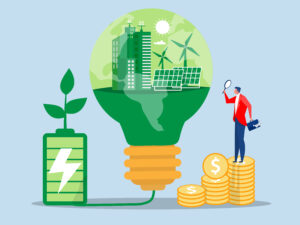
As the chill sets in, the quest for a cost-effective and cozy home heating solution intensifies. The decision between gas and electric heating systems is pivotal, influencing both your comfort and finances. This guide aims to equip you with the knowledge to make a well-informed choice that suits your individual needs and situation.
- Gas vs. Electric Heating Systems Explained
Gas Heating: Involves a furnace burning natural gas to generate heat, distributed via ductwork. It’s efficient and provides quick warmth.
Electric Heating: Electric heaters convert electricity from providers, such as AGL, Energy Australia, Alinta Electricity, etc., directly into heat through elements or radiators. It’s simpler to install but potentially costlier to run, depending on electricity prices.
- Cost-Effectiveness and Energy Efficiency
Installation Costs: Electric systems are typically less expensive to install, while gas systems may offer rebates or incentives.
Running Costs: Gas usually costs less per energy unit, making gas heating more budget-friendly where gas is accessible.
Efficiency: Modern gas heaters are highly efficient, almost fully converting gas into heat, which can mean savings over time.
- Environmental Impact
Emissions: Gas heaters emit pollutants and require ventilation. Electric heaters are cleaner at use but may still impact the environment if the electricity is from fossil fuels.
Sustainability: Electric heating could be greener in areas where electricity is sourced from renewables like wind or solar.
- Comfort and Control
Heat Quality: Gas heat is typically warmer and faster, suitable for colder climates. Electric heat is consistent but may feel less intense.
System Management: Modern heating systems, Both systems can integrate with smart home technology for precise control. Gas systems need more maintenance due to their complexity.
- Safety and Reliability
Gas Heating Safety: Includes risks like gas leaks and carbon monoxide poisoning, necessitating venting and maintenance.
Electric Heating Safety: Generally safer, with no combustion gases and fewer malfunction risks.
- Long-Term Prospects
Durability: Gas furnaces can last up to 20 years with maintenance, while electric heaters have a lifespan of about 10-15 years.
Home Value: Efficient, modern heating systems, especially those meeting environmental standards, can enhance a home’s resale value.
Making Your Choice
Selecting between gas and electric heating requires weighing initial and ongoing costs, comfort, safety, and environmental effects. By thoroughly assessing these aspects, you can choose a heating system that not only warms your home but also aligns with your financial and ethical considerations. Whether you prefer the rapid heat of gas or the straightforward, clean operation of electric heating, the optimal decision will be tailored to your unique needs and the specific traits of your home and locale.
Navigating the energy market to find the best gas and electricity deals can be like untangling a complex puzzle. Yet, with a strategic approach, you can uncover substantial savings. Here’s a roadmap to help you effectively evaluate gas and electricity suppliers and secure the most advantageous terms.
- Gauge Your Energy Consumption
Before you compare gas and electricity suppliers, Understanding your current energy use is pivotal as it influences the cost-effectiveness of potential plans.
Bill Analysis: Examine past energy bills to assess your typical gas and electricity usage.
Peak Usage: Identify times when your energy consumption peaks.
Energy Audit: Consider a professional energy audit to pinpoint excessive energy use areas.
- Investigate Supplier Diversity
Armed with knowledge of your energy needs, explore various suppliers for unique benefits.
Broad Search: Look beyond major suppliers; smaller companies may offer competitive rates.
Eco-friendly Options: If sustainability matters to you, seek suppliers with green energy plans.
Service Quality: Check customer service ratings to understand how suppliers resolve issues.
- Scrutinize Rates and Plans
This step is intricate but crucial for discovering significant savings.
Tariff Knowledge: Familiarize yourself with different tariffs, such as fixed, variable, and indexed.
Contract Duration: Consider the contract length and subsequent terms.
Switching Costs: Be mindful of exit fees for early supplier switching.
- Assess Total Cost Impact
Look beyond the per kWh rate to the overall effect on your energy bills.
Standing Charges: Understand daily fixed costs regardless of energy usage.
Discounts: Investigate discounts for online billing or direct debit arrangements.
Special Offers: Watch for promotions or rebates for extra savings.
- Leverage Comparison Tools
Utilize online tools to streamline the comparison process.
Comparison Sites: Use these platforms to compare multiple suppliers and plans efficiently.
Tool Credibility: Ensure the tool is accredited for impartial advice.
Personalization: Some tools offer customization based on your energy usage.
- Examine the Fine Print
Carefully read the details of any plan before committing.
Rate Fluctuations: Be aware of potential introductory rate increases.
Contract Terms: Clarify all terms, including any additional service fees.
Renewal Conditions: Understand the renewal process post-contract.
- Conduct Regular Reviews
Stay adaptive to changes in energy needs and market conditions.
Yearly Evaluations: Make annual plan reviews a habit.
Market Monitoring: Keep abreast of energy market shifts.
Stay Informed: Subscribe to updates for energy-saving tips and new deals.
Achieving Optimal Savings
While comparing suppliers demands effort, the payoff in savings can be significant. By comprehending your energy patterns, exploring options, meticulously comparing plans, and consistently reassessing your situation, you can ensure you’re receiving the best deal. The objective is not solely cost reduction but also finding a supplier and plan that aligns with your specific requirements and promotes efficient energy management.
Gas vs Electricity (Energy): Which is the Best Option for You?
When it comes to running your home, one of the...
Read MoreEnergy Australia 2026: Is It Still the Right Choice?
As we head into 2026, many Australians are reviewing their...
Read MoreLet’s start saving on your Broadband too!
We offer a free Broadband comparison service for all households too!
You can always speak to one of our experts ?

Samantha Robertson
Solutions Expert
1300 087 011
Frequently Asked Questions
What is the best electricity plan for me?
Every household is different, and there are lots of ways you can tailor your electricity plan. Deal Expert provides up to date energy comparison, price comparison, and energy deals from retailers so you can make an informed decision. It also important to consider whether you want to pay your bills monthly or quarterly depending on your needs. It is always a good time for a bit of exploration and comparison, as you could save hundreds, start today by Deal Expert providers!
How long will it take to switch providers?
Once you’ve confirmed your details with Deal Expert, you’ll be moved over to your new provider within 3-4 weeks, but it depends on the provider and state. Finding a cheap energy deal and confirming your Deal Expert takes only a few minutes. Following that, you have a 10 Business Day ‘cooling off’ period. If you change your mind during this time, you can cancel the switch through Deal Expert and nothing changes. Your new provider will also handle all of the paperwork.
How do I know this company is above board if I've never heard of them?
The Australian energy regulator ensures that every single supplier follows the same rules and regulations, so all Australians have a fair chance of finding an energy company to suit their needs. This is especially important for those who want smaller, lesser-known providers because they can trust in the fact that these companies will be held accountable by law if something goes wrong with their service.
Do I need to cancel my Direct Debit?
When you decide to close your account with your current provider, the company will send you a final bill and the company cancels the direct debit after taking the final payment. If there are any funds in credit on your previous plan, they should notify you so they can transfer these back into your bank account or send me the money via cheque.
Are there any hidden costs?
No, our service is completely free for all customers. This covers everything from visiting our website or calling our call centre in Australia to Deal Expert providers online at the click of a button. We are here to provide you with competitive deals and services.
Is the service from Deal Expert free?
Yes. it is completely free to Deal Expert’s customers. We get paid a commission by your new gas and electricity provider.
How does Solar work?
Solar Panels are made up of many solar cells, which convert sunlight directly into electricity. A photovoltaic (PV) module is a packaged connected assembly of typically 6×10 photovoltaic solar cells but may have as many as 72 cells. Solar panels generate electricity when light shines on the array of panels. The amount generated depends upon how much power or energy the sun provides to the area where they are mounted.
Can you connect my energy if I am moving house?
Yes, we can compare & connect you to a retailer of your choice. Connections usually require at least one business day notice, there may be a connection fee passed through to you. This is not from us; this is charged from the distributor & will be applied to your first energy bill.
When I switch providers will my gas or electricity be interrupted?
There will not be any interruption to your supply of electricity or gas. This is because they will continue to be supplied by the same energy distributor. All that really changes is the name of the energy retailer that issues your energy bills.


